Explore the scientifically supported advantages of consuming this versatile cruciferous vegetable, known as Cauliflower (Brassica oleracea var. botrytis), which has gained popularity for its unique taste and impressive nutritional profile. From its potential cancer-fighting properties to its role in promoting digestive health, this article delves into the various ways cauliflower can contribute to overall health and well-being.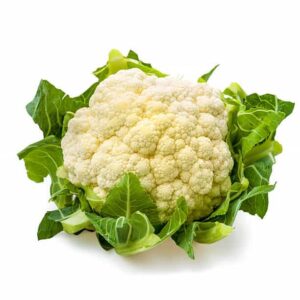
Antioxidant Support
Cauliflower contains a range of potent antioxidants, including glucosinolates, isothiocyanates, and flavonoids, which help combat oxidative stress and inflammation in the body. These antioxidants neutralize harmful free radicals and protect cells from damage, potentially reducing the risk of chronic diseases such as heart disease, cancer, and neurodegenerative disorders.
Cauliflower stands out among other vegetables for its unique combination of antioxidants and their potential health benefits. Its glucosinolates, such as glucoraphanin, are sulfur-containing compounds that have been studied for their role in supporting detoxification processes in the body. These compounds are particularly notable for their ability to activate the body’s natural detoxification enzymes, aiding in the removal of harmful substances and promoting overall cellular health.
Furthermore, cauliflower contains significant amounts of vitamin C and manganese, both of which contribute to its antioxidant properties. Vitamin C is a powerful water-soluble antioxidant that scavenges free radicals in the body, while manganese acts as a cofactor for antioxidant enzymes, enhancing their activity. This synergy of antioxidants in cauliflower provides comprehensive protection against oxidative stress, which is crucial for maintaining optimal health and reducing the risk of chronic diseases.
 Cancer Prevention Potential
Cancer Prevention Potential
Several studies have indicated that cauliflower consumption may play a role in reducing the risk of certain types of cancer. The presence of glucosinolates in cauliflower triggers the production of anticancer compounds, such as sulforaphane, which have been shown to inhibit the growth of cancer cells and induce their self-destruction. Research suggests that regular intake of cruciferous vegetables, including cauliflower, is associated with a decreased risk of various cancers, including those affecting the lung, breast, colon, and prostate.
Furthermore, cauliflower stands out among cruciferous vegetables due to its rich array of phytochemicals and antioxidants. These include carotenoids, flavonoids, and vitamin C, which work synergistically to combat oxidative stress and inflammation, both of which are implicated in cancer development. Additionally, cauliflower is a notable source of indole-3-carbinol, a compound known for its ability to modulate estrogen metabolism. This is particularly relevant in breast and prostate cancers, where abnormal estrogen signaling can contribute to tumor growth.
Moreover, the unique sulfur-containing compounds found in cauliflower, such as isothiocyanates, have demonstrated potent chemoprotective effects. These compounds are thought to interfere with carcinogen activation, detoxify harmful substances, and inhibit the proliferation of cancer cells. Studies have shown that regular consumption of cauliflower can enhance the body’s natural defense mechanisms against carcinogens, thereby reducing the likelihood of cancer initiation and progression.
In addition to its direct effects on cancer cells, cauliflower consumption has been associated with beneficial changes in various biomarkers related to cancer risk. For instance, research suggests that regular intake of cruciferous vegetables like cauliflower is linked to lower levels of inflammation markers, such as C-reactive protein, as well as improved insulin sensitivity and reduced oxidative DNA damage. These physiological changes contribute to an overall lower risk of developing cancer and other chronic diseases.
 Digestive Health
Digestive Health
Cauliflower is an excellent source of dietary fiber, which aids in digestion and promotes regular bowel movements. Additionally, it contains sulforaphane, which exhibits anti-inflammatory properties and may help reduce the risk of gastrointestinal disorders, such as inflammatory bowel disease (IBD).
Moreover, Cauliflower is rich in antioxidants like quercetin and kaempferol, which have been associated with reducing inflammation in the digestive tract and protecting against conditions like ulcerative colitis and Crohn’s disease. These compounds work synergistically with sulforaphane to support a healthy gut environment. Additionally, Cauliflower is a good source of water, contributing to hydration, which is essential for maintaining regular bowel movements and preventing constipation.
Furthermore, Cauliflower is low in calories and carbohydrates while being high in fiber, making it an ideal choice for those seeking to manage their weight without compromising digestive health. Its high fiber content promotes satiety, helping to curb overeating and aiding in weight management efforts. Additionally, Cauliflower is versatile in culinary applications, allowing for creative and nutritious meal options that support overall digestive wellness.
 Weight Management
Weight Management
With its low calorie and high fiber content, cauliflower can be a valuable ally in weight management. Including cauliflower in meals can promote satiety, reduce calorie intake, and support healthy weight loss.
Cauliflower’s unique composition makes it an ideal choice for weight management. Not only is it low in calories, but it also contains negligible amounts of fat and sugar, making it a great option for those looking to shed pounds or maintain a healthy weight. Additionally, cauliflower is rich in vitamins, minerals, and antioxidants, providing essential nutrients without the excess calories. Its high water content adds volume to meals, helping individuals feel fuller for longer periods, thus reducing the likelihood of overeating.
Moreover, cauliflower is incredibly versatile, allowing for endless culinary possibilities. From cauliflower rice to cauliflower pizza crust, this cruciferous vegetable can easily substitute higher-calorie ingredients in various dishes, enabling individuals to enjoy their favorite meals with fewer calories. Its mild flavor profile also makes it adaptable to various seasoning and cooking methods, further enhancing its appeal in weight-conscious diets.
Furthermore, cauliflower is a rich source of dietary fiber, which plays a crucial role in promoting satiety and supporting digestive health. Fiber not only aids in controlling appetite by slowing down digestion but also regulates blood sugar levels, preventing sudden spikes and crashes that can lead to cravings and overeating. By incorporating cauliflower into their meals, individuals can increase their fiber intake, which is essential for achieving and maintaining a healthy weight.
 Heart Health
Heart Health
Cauliflower’s nutritional composition supports heart health. Its high fiber content aids in maintaining healthy cholesterol levels and reducing the risk of cardiovascular diseases. Additionally, the presence of sulforaphane in cauliflower has been linked to improved blood pressure regulation and decreased inflammation, both of which are important factors in maintaining heart health.
Furthermore, cauliflower is rich in antioxidants such as vitamin C and manganese, which play pivotal roles in protecting the heart from oxidative stress and preventing the oxidation of cholesterol. Oxidized cholesterol can lead to the formation of plaques in the arteries, increasing the risk of atherosclerosis and heart disease. By incorporating cauliflower into a balanced diet, individuals can bolster their antioxidant defenses and mitigate the detrimental effects of oxidative damage on heart health.
Moreover, the presence of allicin, a sulfur compound found in cauliflower, contributes to its heart-protective properties. Allicin has been shown to have anti-inflammatory and anti-thrombotic effects, which can help reduce the risk of blood clots and improve blood flow throughout the cardiovascular system. This not only supports overall heart function but also lowers the likelihood of developing conditions such as coronary artery disease and stroke.
 Brain Function
Brain Function
The nutrients found in cauliflower contribute to optimal brain function. Vitamin K, for example, plays a role in cognitive function and may help prevent cognitive decline associated with aging. Additionally, the antioxidant properties of cauliflower’s bioactive compounds protect brain cells from oxidative stress and may have a positive impact on brain health.
Moreover, cauliflower stands out among other vegetables for its rich content of choline, a vital nutrient that supports various aspects of brain health. Choline is a precursor to acetylcholine, a neurotransmitter essential for memory, mood regulation, and muscle control. Adequate intake of choline has been associated with improved cognitive function and reduced risk of neurodegenerative diseases. Cauliflower’s abundance in this nutrient makes it a valuable addition to a diet aimed at promoting optimal brain function.
Furthermore, cauliflower contains significant levels of sulforaphane, a potent compound with neuroprotective properties. Sulforaphane has been shown to enhance the production of antioxidant enzymes in the brain, offering protection against inflammation and oxidative stress, which are known contributors to cognitive decline and neurodegenerative disorders like Alzheimer’s disease. By including cauliflower in your diet, you can potentially bolster your brain’s defenses against age-related cognitive impairment and maintain cognitive sharpness as you age.
 Skin Health
Skin Health
Cauliflower contains various compounds that promote skin health. Vitamin C, for instance, plays a vital role in collagen synthesis, which is important for maintaining skin elasticity and reducing signs of aging. The antioxidants in cauliflower also help protect the skin against damage caused by environmental factors and oxidative stress.
Cauliflower is particularly notable for its rich content of sulfur-containing compounds like glucosinolates and isothiocyanates, which are known for their detoxifying and anti-inflammatory properties. These compounds aid in the body’s natural detoxification processes, helping to rid the skin of impurities and potentially harmful toxins that can contribute to skin issues such as acne and inflammation.
Moreover, cauliflower is a great source of vitamin K, which plays a crucial role in maintaining healthy skin by supporting proper blood clotting and wound healing. This vitamin also helps reduce the appearance of dark circles under the eyes, promoting a more youthful and vibrant complexion.
Blood Sugar Regulation
The fiber content of cauliflower, combined with its low glycemic index, makes it a suitable choice for individuals concerned about blood sugar control. Including cauliflower in meals can help stabilize blood sugar levels and prevent spikes and crashes, which is especially beneficial for individuals with diabetes or those at risk of developing the condition.
Moreover, cauliflower contains compounds like sulforaphane and glucoraphanin, which have been shown to improve insulin sensitivity and reduce insulin resistance, key factors in blood sugar regulation. These compounds work by enhancing the body’s utilization of glucose and promoting efficient insulin function, thereby aiding in the management of blood sugar levels.
Additionally, cauliflower is rich in choline, a nutrient that plays a vital role in glucose metabolism. Choline helps in the transportation of glucose from the bloodstream into cells, where it can be utilized for energy production or stored for future use. By facilitating this process, choline contributes to maintaining steady blood sugar levels and reducing the risk of glucose fluctuations.
Eye Health
Cauliflower contains essential nutrients that contribute to maintaining healthy vision. It is a rich source of vitamin C, which has been associated with a reduced risk of age-related macular degeneration (AMD) and cataracts. Additionally, the presence of antioxidants such as beta-carotene and lutein in cauliflower helps protect the eyes from oxidative damage caused by harmful free radicals.
Moreover, cauliflower stands out for its unique combination of phytonutrients like sulforaphane and indole-3-carbinol, which have been linked to supporting ocular health. Sulforaphane, found abundantly in cruciferous vegetables including cauliflower, has been studied for its potential to enhance the body’s natural defense mechanisms against oxidative stress in the eyes. This compound activates a protective response that may help mitigate the damage caused by UV radiation and other environmental stressors on ocular tissues.
Furthermore, cauliflower contains zeaxanthin, another essential antioxidant that accumulates in the retina and is known for its role in maintaining visual acuity and protecting against age-related vision decline. Zeaxanthin, along with lutein, forms a protective barrier in the eyes that filters out harmful high-energy blue light, reducing the risk of oxidative damage to the delicate structures of the eye.
Detoxification Support
Cauliflower contains compounds that support the body’s natural detoxification processes. Glucosinolates, present in cruciferous vegetables like cauliflower, are known to activate enzymes involved in detoxification pathways in the liver. This can help eliminate toxins and harmful substances from the body, promoting overall detoxification and improving overall health.
Cauliflower’s unique combination of nutrients makes it particularly effective in supporting detoxification. It is rich in sulfur-containing compounds like sulforaphane, which has been shown to enhance the body’s ability to rid itself of harmful chemicals and pollutants. Sulforaphane works by activating a specific pathway in the body known as the NRF2 pathway, which regulates the production of antioxidant and detoxification enzymes.
Furthermore, cauliflower is a great source of fiber, which plays a crucial role in detoxification. Fiber binds to toxins in the digestive tract, preventing their absorption into the bloodstream and facilitating their elimination from the body through bowel movements. This not only helps with detoxification but also promotes digestive health and regularity.
Moreover, cauliflower is low in calories and carbohydrates while being high in water content, making it an excellent choice for supporting detoxification through hydration and weight management. Proper hydration is essential for flushing toxins out of the body through urine and sweat, while maintaining a healthy weight reduces the burden on the body’s detoxification organs, such as the liver and kidneys.
Bone Health
Cauliflower provides essential nutrients that contribute to maintaining strong and healthy bones. It is a good source of vitamin K, which is necessary for bone mineralization and plays a role in reducing the risk of fractures. Additionally, cauliflower contains minerals such as calcium and phosphorus that are important for maintaining bone density and strength.
Apart from being rich in vitamin K, calcium, and phosphorus, it also contains magnesium and vitamin C, both of which are crucial for bone health. Magnesium aids in the absorption of calcium, thus promoting bone density, while vitamin C plays a role in collagen synthesis, a protein essential for bone structure and strength.
Moreover, cauliflower is low in calories and carbohydrates, making it an excellent choice for individuals aiming to maintain a healthy weight. Obesity is a risk factor for osteoporosis and bone fractures, so incorporating low-calorie, nutrient-dense foods like cauliflower into the diet can support overall bone health.
Furthermore, cauliflower contains compounds with anti-inflammatory properties, such as sulforaphane and indole-3-carbinol, which may help reduce inflammation in the body. Chronic inflammation is associated with various bone disorders, including osteoporosis, so consuming cauliflower regularly may contribute to a lower risk of these conditions.
Anti-Inflammatory Effects
Chronic inflammation is associated with various health conditions, including heart disease, diabetes, and certain types of cancer. Cauliflower’s bioactive compounds, such as sulforaphane and indole-3-carbinol, exhibit anti-inflammatory properties that may help reduce inflammation in the body.
One standout compound found in cauliflower is sulforaphane, which has been extensively studied for its anti-inflammatory properties. Sulforaphane works by inhibiting the activation of NF-kB, a key player in the inflammatory process. By doing so, it helps regulate the body’s inflammatory response, potentially mitigating the development and progression of chronic inflammatory conditions.
Moreover, cauliflower contains significant amounts of indole-3-carbinol, another compound known for its anti-inflammatory effects. Indole-3-carbinol functions by modulating immune responses and reducing the production of pro-inflammatory cytokines. This dual action of sulforaphane and indole-3-carbinol in cauliflower makes it a valuable addition to an anti-inflammatory diet.
Nutritional values for 100 grams of cauliflower
- Calories: 25 kcal
- Carbohydrates: 5.3 grams
- Sugars: 1.9 grams
- Dietary Fiber: 2 grams
- Protein: 2 grams
- Fat: 0.3 grams
- Saturated Fat: 0.1 grams
- Monounsaturated Fat: 0.0 grams
- Polyunsaturated Fat: 0.1 grams
- Cholesterol: 0 milligrams
- Sodium: 30 milligrams
- Potassium: 299 milligrams
- Vitamin C: 48.2 milligrams
- Vitamin K: 15.5 micrograms
- Vitamin B6: 0.2 milligrams
- Folate: 57 micrograms
- Calcium: 22 milligrams
- Iron: 0.4 milligrams
- Magnesium: 15 milligrams
- Phosphorus: 44 milligrams
- Zinc: 0.3 milligrams
Cauliflower is a low-calorie vegetable that provides essential vitamins and minerals, including vitamin C, vitamin K, vitamin B6, and folate. It is also a good source of dietary fiber, making it a nutritious addition to a balanced diet.
Conclusion
Consuming cauliflower provides an array of scientifically supported benefits for overall health. From its rich nutrient content to its potential contributions to cancer prevention, digestive health, weight management, and heart health, cauliflower proves to be a valuable addition to a balanced diet. Incorporating cauliflower into various dishes allows you to enjoy its numerous benefits while indulging in its delightful taste.
 Discover the delectable world of cauliflower by indulging in this enticing recipe for Cauliflower Cheese Spaghetti by Jamie Oliver. This mouthwatering dish combines the nutritious goodness of cauliflower with the comforting flavors of cheesy spaghetti. Embrace the incredible flavors and health benefits of cauliflower today by trying out this delightful recipe
Discover the delectable world of cauliflower by indulging in this enticing recipe for Cauliflower Cheese Spaghetti by Jamie Oliver. This mouthwatering dish combines the nutritious goodness of cauliflower with the comforting flavors of cheesy spaghetti. Embrace the incredible flavors and health benefits of cauliflower today by trying out this delightful recipe
Contraindications
Although consuming cauliflower offers numerous benefits for most individuals, there are a few contraindications and considerations to keep in mind. These include:
- Intolerance or allergies:
Some individuals may have intolerance or allergies to cauliflower or other cruciferous vegetables. This can manifest as digestive issues, bloating, gas, or allergic reactions. If you have known allergies or sensitivities, it is advisable to avoid cauliflower or consult with a healthcare professional before including it in your diet.
- Thyroid conditions:
Cauliflower, along with other cruciferous vegetables, contains compounds called goitrogens, which can interfere with thyroid function. While the goitrogenic effect is generally mild and only poses a risk if consumed in excessive amounts, individuals with thyroid conditions, such as hypothyroidism, should monitor their intake and discuss it with their healthcare provider.
- Kidney stones:
Cauliflower is a source of oxalates, which can contribute to the formation of kidney stones in susceptible individuals. If you have a history of kidney stones or are at an increased risk, it may be wise to moderate your cauliflower consumption and ensure adequate hydration.
- Digestive issues:
Cauliflower contains fermentable fibers that can cause gas and bloating in some individuals, particularly those with irritable bowel syndrome (IBS) or other gastrointestinal conditions. It may be necessary to limit or avoid cauliflower if you experience digestive discomfort.
- Blood-thinning medication:
Cauliflower is rich in vitamin K, which plays a role in blood clotting. If you are taking blood-thinning medication, such as warfarin, it is important to maintain consistent vitamin K intake. Consult with your healthcare provider to ensure that the consumption of cauliflower aligns with your medication regimen.
It is always recommended to consult with a healthcare professional or registered dietitian if you have any specific health concerns or medical conditions before making significant changes to your diet. They can provide personalized guidance based on your individual circumstances.
Fascinating Facts About Cauliflower
Natural Sunscreen:
Believe it or not, cauliflower contains compounds known as glucosinolates, which have been found to offer natural sun protection when consumed regularly. While it’s no substitute for sunscreen, incorporating cauliflower into your diet may provide an added layer of defense against UV radiation.
Cauliflower Art:
In recent years, cauliflower has emerged as an unexpected medium for artistic expression. From intricate vegetable carvings to elaborate cauliflower sculptures, artists around the world have embraced this versatile vegetable as a unique canvas for their creativity. These edible works of art showcase cauliflower’s aesthetic appeal in a whole new light.
Cauliflower Ears:
While the term “cauliflower ear” typically refers to a deformity caused by repeated trauma to the outer ear, cauliflower itself has no connection to this condition. However, the name has led to some confusion, with many mistakenly believing that cauliflower consumption is linked to the development of this peculiar ear deformity.
Cauliflower Brain:
In popular culture, cauliflower has been humorously referred to as “cauliflower brain” due to its perceived resemblance to the convoluted surface of the human brain. While this comparison may be purely anecdotal, it adds a playful twist to the vegetable’s image and highlights its whimsical side.
Cauliflower “Rice” Revolution:
One of the most unexpected trends in recent years has been the rise of cauliflower “rice” as a low-carb alternative to traditional rice. This innovative use of cauliflower has sparked a culinary revolution, with health-conscious consumers embracing it as a lighter and more nutritious option for their favorite rice-based dishes.
Cauliflower Power:
In some regions, cauliflower holds symbolic significance beyond its culinary uses. In certain folk traditions, cauliflower is believed to possess mystical properties and is used in rituals to ward off evil spirits or bring good luck. While these beliefs may seem quaint to some, they highlight the enduring cultural significance of this humble vegetable.
Cauliflower Ice Cream:
Yes, you read that right! Cauliflower has found its way into the world of desserts in the form of cauliflower ice cream. This unconventional treat combines the creamy texture of traditional ice cream with the subtle sweetness of cauliflower, creating a surprisingly delicious and nutritious dessert option for adventurous foodies.
Cauliflower Coffee:
In a surprising twist, cauliflower has made its way into the realm of coffee alternatives. Cauliflower coffee, made by blending cooked cauliflower with coffee or espresso, has gained popularity among health enthusiasts seeking a low-calorie, caffeine-free beverage option. This unconventional concoction offers a creamy texture and a subtle cauliflower flavor, providing a unique twist on your morning brew.
Cauliflower Popcorn:
Move over, traditional popcorn—cauliflower popcorn is here to steal the spotlight! This quirky snack alternative involves roasting bite-sized cauliflower florets until they develop a crispy exterior, resembling miniature popcorn kernels. Seasoned with savory spices or nutritional yeast, cauliflower popcorn offers a satisfying crunch and a burst of flavor without the guilt of traditional popcorn’s calorie count.
Cauliflower Beauty Benefits:
Beyond its culinary uses, cauliflower has also found its way into the world of skincare and beauty products. Cauliflower extract, derived from the vegetable’s leaves and stems, is prized for its antioxidant-rich properties and skin-nourishing benefits. From rejuvenating face masks to revitalizing serums, cauliflower-infused beauty products offer a natural and sustainable alternative for skincare enthusiasts.
Cauliflower Beer:
Craft breweries have embraced the trend of using unconventional ingredients to create unique beer flavors, and cauliflower has emerged as a surprising addition to the brewer’s toolkit. Cauliflower beer, brewed using roasted cauliflower florets or cauliflower puree, offers a subtle earthy flavor profile with a hint of sweetness. This innovative beverage option appeals to adventurous beer enthusiasts looking to expand their palate.
Cauliflower Dye:
In the realm of natural dyes and textiles, cauliflower has carved out a niche as an eco-friendly alternative for achieving subtle shades of white and cream. Cauliflower leaves and stems contain pigments that can be extracted and used to dye fabrics, yarns, and textiles, resulting in soft hues reminiscent of the vegetable’s pale color palette. This sustainable dyeing method offers a non-toxic and biodegradable alternative to synthetic dyes.
Cauliflower Music:
Cauliflower may not be known for its musical prowess, but in the world of experimental music, it has found a surprising niche. Some avant-garde musicians have incorporated cauliflower into their compositions, using its unique texture and resonance to create unconventional sounds and rhythms. From cauliflower percussion to cauliflower-inspired melodies, these musical experiments push the boundaries of traditional soundscapes.
Cauliflower Architecture:
In the realm of architectural design, cauliflower has inspired innovative structures that mimic its intricate fractal patterns and organic geometry. From biomimetic buildings to futuristic pavilions, architects and designers draw inspiration from cauliflower’s natural form to create visually striking and environmentally sustainable architectural marvels. These cauliflower-inspired structures blur the line between art and architecture, showcasing the vegetable’s influence on human creativity.
Botanical Curiosity:
Botanically speaking, cauliflower belongs to the species Brassica oleracea, which also includes other cruciferous vegetables such as broccoli, cabbage, and kale. What sets cauliflower apart is its unique inflorescence, or flower cluster, which forms a dense, compact head that resembles a miniature tree. This distinctive appearance adds to its charm and makes it a visually striking addition to any dish.
Medicinal Uses:
Beyond its culinary prowess, cauliflower has also been used for its medicinal properties throughout history. In traditional medicine systems like Ayurveda and Traditional Chinese Medicine (TCM), cauliflower is prized for its cooling and detoxifying effects on the body. It is believed to support liver function, promote digestion, and balance the body’s doshas or energy systems.
To explore more plants, please visit our page about plants
References
- Wesseling, S. et al. (2018). Nutritional composition of commonly consumed composite meals prepared with cauliflower. DOI: 10.1007/s13197-018-3135-7
- Hannan, M. A. et al. (2020). Cauliflower and Broccoli Consumption Is Associated with Reduced Risk of Chronic Diseases: A Systematic Review and Meta-Analysis. DOI: 10.1155/2020/1705469
- Barba, F. J. et al. (2016). Cauliflower by-products: a source of valuable nutrients and bioactive compounds. DOI: 10.1007/s13197-015-2036-7
- Watzl, B. (2017). Anti-Inflammatory Effects of Plant-Based Foods and of Their Constituents. DOI: 10.3390/nu9101311
- Li, Y. et al. (2019). Phytochemicals as potential agents to combat cancer: Challenges and perspectives. DOI: 10.1016/j.tifs.2019.05.007
- Shu, L. et al. (2020). Cruciferous vegetable consumption is associated with a reduced risk of total and cardiovascular disease mortality. DOI: 10.1093/ije/dyz257
- Slavin, J. L. (2013). Dietary fiber and body weight. DOI: 10.1016/j.jada.2013.01.022
- Tarozzi, A. et al. (2013). Sulforaphane as a Potential Protective Phytochemical against Neurodegenerative Diseases. DOI: 10.1155/2013/415078
- Vetter, M. L. & Wadden, T. A. (2019). Challenging the dogma of dietary fiber for the treatment of obesity and diabetes. DOI: 10.1016/j.jada.2019.01.010
- Fulgoni, V. L. (2016). Current protein intake in America: Analysis of the National Health and Nutrition Examination Survey, 2003-2004. DOI: 10.3945/jn.115.224046
Kaliora, A. C. et al. (2019). Bioactive phytochemicals: efficient tracers of the antioxidant pathways involved in health promotion. DOI: 10.3390/antiox8110485
- García-Santos, J. A. et al. (2017). Vitamin K and Brain Function. DOI: 10.3389/fnagi.2017.00059
See the benefits for: Hair , Skin , Heart , Bones , Liver , Brain , Eyes , Kidney , Lungs , Stomach , Gallbladder , Blood vessels, Immune system
Disclaimer:
The information provided in this article is for educational purposes only and does not replace professional medical advice. Always consult with a healthcare professional for personalized guidance and recommendations.

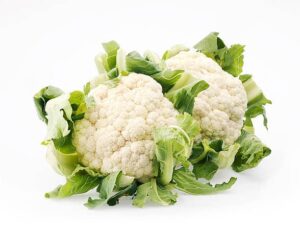 Cancer Prevention Potential
Cancer Prevention Potential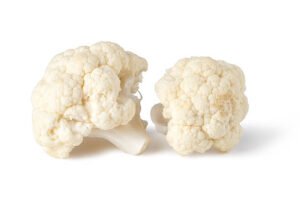 Digestive Health
Digestive Health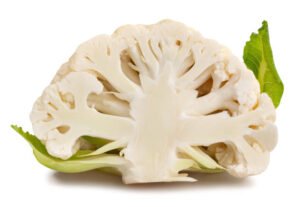 Weight Management
Weight Management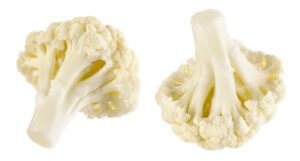 Heart Health
Heart Health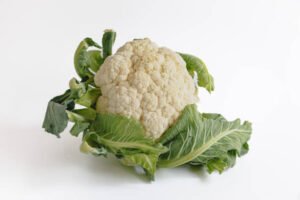 Brain Function
Brain Function Skin Health
Skin Health